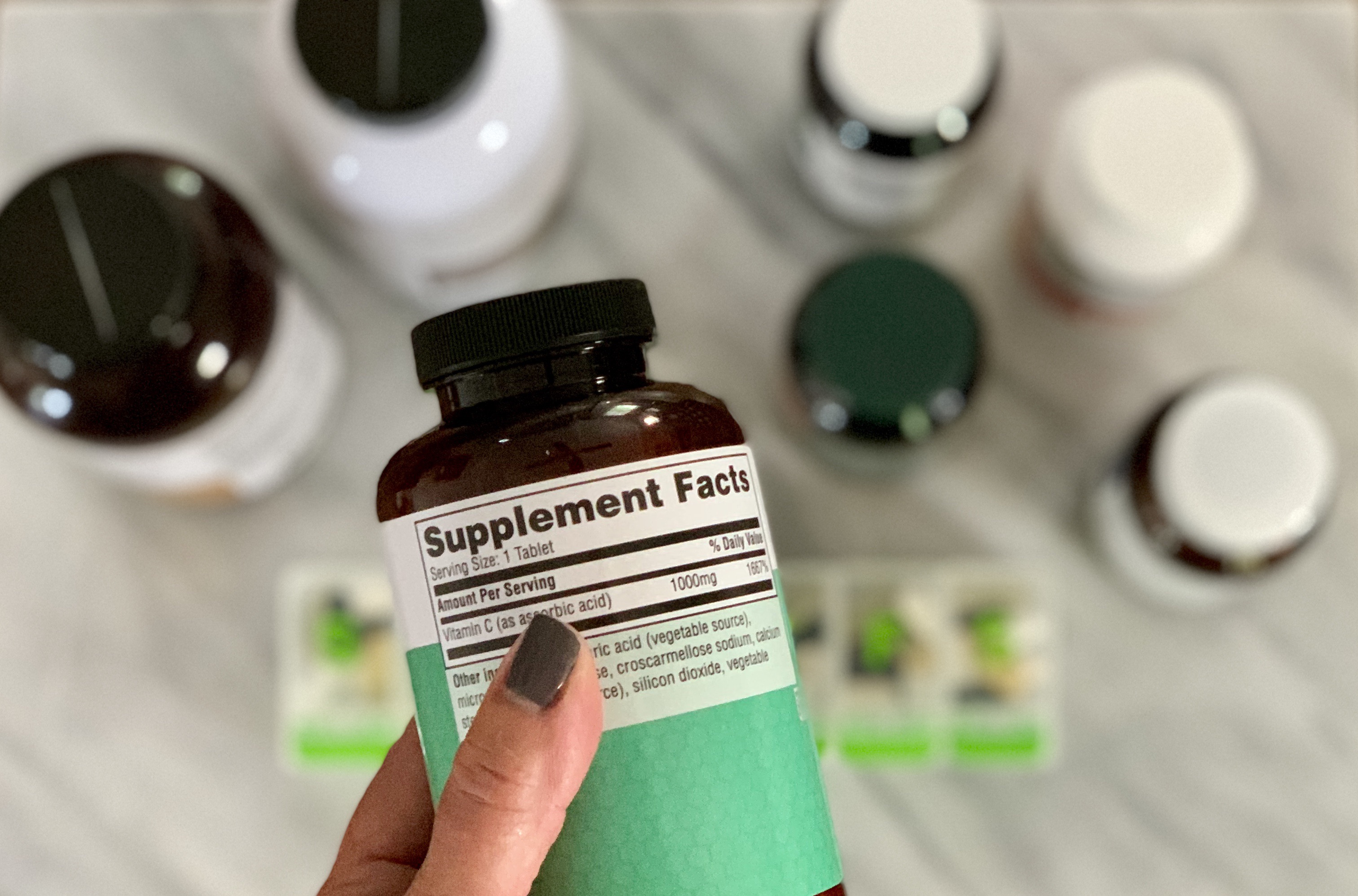
Supplement Label Requirements: A Complete Guide to FDA Compliance

Understanding Supplement Label Requirements
What is a Dietary Supplement?
FDA refers to section 201(ff) of the Federal Food, Drug, and Cosmetic Act when answering what is a dietary supplement. A supplement is a product to supplement the diet. It has one or more dietary ingredients, such as vitamins, minerals, herbs or botanicals, amino acids, other dietary ingredients, their concentrates, metabolites, constituents, extracts, or combinations.
It is to be swallowed, and not modeled as a traditional food or even the only participant of a meal or the diet. It should be marketed as a dietary supplement and be in the form of tablets, capsules, powder, softgels, gelcaps, or liquids. The regulatory framework of FDA under which supplements are regulated as foods is different from the regulatory structure of drugs. Such a legal frame determines the appearance of labels and the types of claims that can be made.
Why FDA Label Compliance Matters
Knowing supplement label requirements matters since the label is the legal identity and the communication for the consumer. Under FDA supplement label requirements, must show:
- The statement of identity.
- Net quantity of contents.
- The “Supplement Facts” nutrition labeling.
- An ingredient list.
- The name and place of business of the manufacturer, packer, or distributor.
If you use structure and function or related claims, you must include the exact disclaimer that FDA has not evaluated the claim, keep competent substantiation, and notify FDA within 30 days of first marketing. FDA does not preapprove supplement labels, and firms are fully responsible for getting them right. Non-compliance misbrands the product and can prompt enforcement.
Expect warning letters, recalls, and even fines or criminal penalties under 21 U.S.C. §333. Imports can also be detained or refused under import alerts specific to supplements. Along these lines, tight FDA label compliance protects consumers and keeps products in the U.S. market.
FDA Regulations for Dietary Supplement Labeling

Mandatory Information
As we know, on the principal display and information panels, dietary supplement labeling must show the above-mentioned five things. At the same time, a U.S. mailing address or phone number for serious adverse event reports is also required. Without it, the product is misbranded.
Note that “directions for use” are not mandated by rule, but they are customary, may be needed for safe use, and they determine the serving size used in Supplement Facts. So, just place the required items where FDA rules specify, and keep them conspicuous and truthful.
Supplement Facts Panel (SFP) and Serving Size Rules
List “(b)(2) dietary ingredients” (calories, total fat, vitamin D, calcium, iron, or potassium) above threshold amounts. Declare their quantitative amounts and % Daily Value (%DV) in the SFP in required units and order. For “other dietary ingredients” without DVs (botanicals or amino acids), list the amount by weight and use an asterisk that ties to “Daily Value not established.”
Serving size = the amount you recommend per eating occasion. Express it with the correct household term (tablet, capsule, or teaspoon). If you recommend multiple servings per day, you may also show “per day” values besides “per serving.” Follow updated unit conventions (folate in mcg DFE, with folic acid in parentheses). These are core supplement label requirements.
Ingredient List and Allergen Declarations
List ingredients by name in descending order of predominance by weight. Ingredients declared in the SFP do not need repeating in the ingredient list. List all other excipients under “Other ingredients.” For proprietary blends, name the blend, show its total weight per serving, and list the blend’s components in descending order (amounts for each component may be omitted), except that vitamins or minerals with RDIs must be declared individually with amounts.
The food allergens have to be established under the ingredient list or in a statement of “Contains” immediately after or adjacent to the ingredient list. This applies to supplements, and sesame has been an allergen since January 1, 2023. Adhere to the current FDA standards of allergen guidance and the FASTER Act changes. These are key FDA supplement label requirements.
Health Claims vs. Structure/Function Claims
A health claim links a substance to a reduced risk of a disease. Meanwhile, the FDA authorizes these by regulation per “significant scientific agreement,” and some lesser-supported “qualified health claims” carry qualifying language. A structure or function claim describes how a nutrient affects normal body structure or function (as an example, supports immune health).
For supplements, any structure or function claim needs the DSHEA disclaimer, including “This statement has not been evaluated by the FDA…,” and you must notify the FDA within a month of first marketing. Disease claims are not allowed for supplements. Suppose you say the product prevents colds or treats hypertension. In that case, the FDA will treat it as a drug unless it’s an authorized health claim. Compliant: “supports memory.” Non-compliant: “treats Alzheimer’s.”
Common Challenges and Mistakes to Avoid
- False or Restricted Health Claims: Do not suggest treatment, curing, or disease prevention. That makes your product a drug claim that is under 21 CFR 101.93. Once again, in case you present structure or function claims, provide the specific disclaimer and send the 30-day report to the FDA. Be honest and not deceptive in claims.
- Formatting and Design Mistakes: Adhere to the rules of Supplement Facts format. Also, make the title of the Supplement Facts large and bold, the panel is to be boxed, and a single easy-to-read type should be used. Text on the information panel should be conspicuous, at least 1/16-inch type, well contrasted, and should not have intermediary material breaking up required items. Add statements on PDP or IP in the appropriate order. These are the fundamentals of supplement label requirements.
- Lack of Revision of Labels with New Rules: Labels need to monitor the FDA changes. E.g., changes must be announced for vitamin D, potassium, and added sugar and reflect amended Daily Values in the Supplement Facts label. Review FDA’s revision guidance and update specifications, artwork, and QA checks accordingly. Last but not least, say “yes” to periodic label audits against current FDA supplement label requirements.
- Legal Threats and Fines associated with Mislabeling: Mislabeling is misbranding under the FD&C Act. The FDA and DOJ can warn, seize, enjoin, fine, and force recalls or import refusals. Disease claims can reclassify your product. The financial and reputational fallout can be harsh. In 2024, Defyned Brands pled guilty to distributing misbranded dietary supplements and agreed to a $4.5 million forfeiture.
Supplement Labeling Solution
So, let’s conclude our discussion now. Design for bold, boxed Supplement Facts, single readable type, and required layout in 21 CFR 101.36. Include the five required label statements and list nutrients correctly. Add a U.S. address or phone to receive adverse event reports. Use the FDA’s Dietary Supplement Labeling Guide and the COSM portal to plan claims and assemble files.
FDA doesn’t preapprove labels; instead, self-check, file any claim notice within 30 days via COSM, and submit an NDI notice 75 days before marketing if an ingredient is new. Having said that, we at TCI Biotech help with FDA registration and regulatory reviews, and we offer predesign “ready-to-go” and custom formulas. Suppose you need a supplement labeling solution that satisfies FDA supplement label requirements. Just contact us for compliance support or custom formulation. We are here to develop your customized formulation or RTG solution.